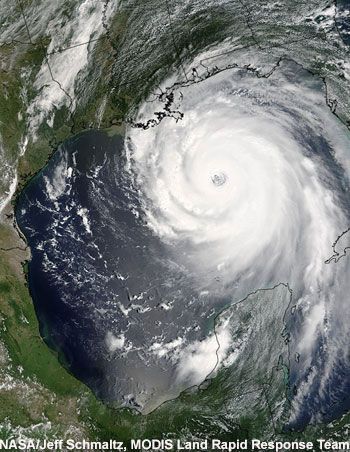Mental Health Problems Rampant In Kids Displaced by Katrina

Five years after Hurricane Katrina wreaked havoc on the Gulf Coast, the impact of the disaster continues to take a psychological toll on children, according to a new study.
The results show that more than 37 percent of children displaced by the disaster, which unfolded five years ago this week, have been diagnosed with depression, anxiety, or behavioral and conduct disorders. These children were also five times more likely to experience emotional disturbances than kids not affected by the hurricane.
However, fewer than half of parents seeking mental health counseling for their children were able to access professional services.
"This study points to a major crisis facing the children of the post-Katrina Gulf Region," said study researcher Dr. Irwin Redlener, director of the National Center for Disaster Preparedness at Columbia's Mailman School of Public Health. "From the perspective of the Gulf's most vulnerable children and families, the recovery from Katrina and the flooding of New Orleans has been a dismal failure."
Investigators believe that housing and community instability and the uncertainty of recovery undermine family resilience and the emotional health of children.
"Affected families need urgent assistance to return to a state of 'normalcy' characterized by safe communities and stable housing. Nearly two out of three children affected by Katrina continue to experience serious mental and behavioral problems, or the stress of unstable housing, or both, with children living in poverty over two times as susceptible to serious emotional disorders. We believe that this represents at least 20,000 children affected by Katrina — and perhaps considerably more," Redlener said.
It is thought that Katrina forced 1.5 million people in the Gulf Coast region to leave their homes as the hurricane approached landfall in late August 2005. After a year, 500,000 people remained displaced, many residing in highly transitional shelters, including FEMA trailer parks.
Sign up for the Live Science daily newsletter now
Get the world’s most fascinating discoveries delivered straight to your inbox.
The researchers have collected mental health data based on face-to-face interviews since January 2006 from a random sample of 1,079 households in Louisiana and Mississippi, including 427 children. The data were collected in four waves over the course of four years with the majority of data for this analysis drawn from the fourth round of data, collected through March 2010.
The study was published Aug. 23 in the Journal of Disaster Management and Public Health Preparedness.
The study findings are supported by clinical data from the Children's Health Fund, which funded the study. The CHF provides care for families and children in underserved areas in the Gulf Coast through mobile clinics.
In the period of June 2009 through June 2010, despite improvement in housing conditions in Louisiana, psychiatric, developmental or learning-related disorders in children were diagnosed as frequently as respiratory illness. And in New Orleans alone, approximately 30,000 school children were not able to return to public school. However, data also shows that children who were relocated sooner did better in school than students with longer periods of displacement, thus highlighting the importance of social systems in a child's post-disaster recovery, the researchers say.











